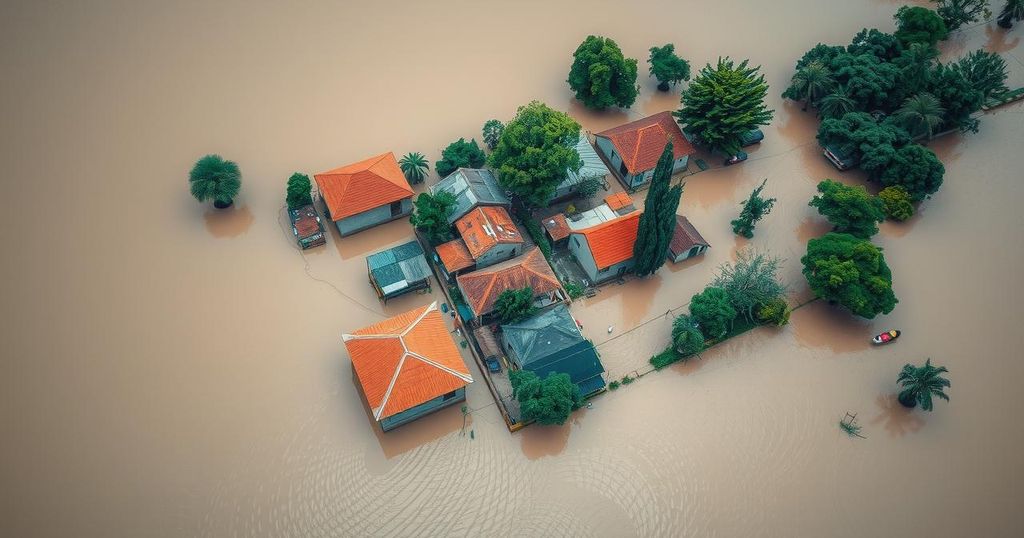Floods Kill at Least 111 as Northern Nigeria Battles Climate Change, Dry Spells and Heavy Rainfall

Recent floods in Mokwa, northern Nigeria, have claimed the lives of at least 111 people and could lead to a higher death toll as search efforts continue. Heavy rainfall, exacerbated by climate change, has caused severe flooding in the region. Local leaders stress the need for better flood-control infrastructure to prevent such tragedies in the future.
Heavy rains in northern Nigeria have led to devastating floods, resulting in the deaths of at least 111 people in the town of Mokwa. This information was confirmed by local officials on Friday, who expressed concerns that the death toll could rise. Situated over 180 miles from Abuja, Mokwa is a vital market hub where northern farmers sell supplies to southern traders. The Nigerian Hydrological Services Agency has not yet disclosed how much rain fell prior to dawn on Thursday.
The recent flooding comes amid a backdrop of challenges faced by communities in northern Nigeria, including prolonged dry spells exacerbated by climate change. These conditions contribute to severe flooding during Nigeria’s brief wet seasons. Social media platforms are filled with images and videos showing the intense flooding, with many homes submerged as residents wade through waist-deep waters to save belongings or assist others in distress.
Ibrahim Audu Husseini, spokesman for the Niger State emergency agency, noted that additional bodies have been recovered, suggesting that the confirmed death toll may increase. Mokwa, located nearly 240 miles west of Abuja, serves as a major trading point for food supplies between regional farmers and traders.
In response to the disaster, Jibril Muregi, chairman of the Mokwa local government area, emphasized the urgent need for flood-control infrastructure. “This critical infrastructure is essential to mitigating future flood risks and protecting lives and property,” he remarked when speaking to Premium Times about the situation.
This recent calamity follows a series of disasters exacerbated by heavy rains and a dam collapse in Maiduguri last September, which caused at least 30 fatalities and displaced millions. These events underscore the severe humanitarian crises stemming not only from natural disasters but also from ongoing conflicts such as the Boko Haram insurgency.
The flooding in northern Nigeria has resulted in significant casualties, highlighting the urgent need for effective flood prevention measures. As authorities remain focused on recovery, the ongoing effects of climate change highlight the vulnerability of the region’s communities. With inadequate infrastructure compounding the challenges posed by natural disasters, urgent action is necessary to mitigate future risks and safeguard the lives of residents.
Original Source: www.news4jax.com







